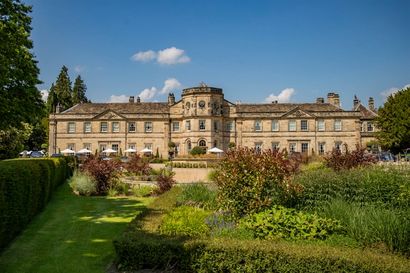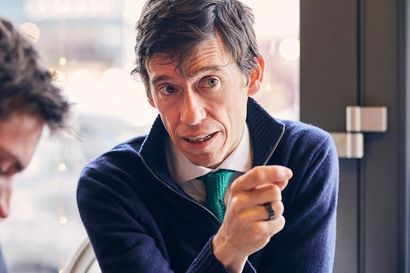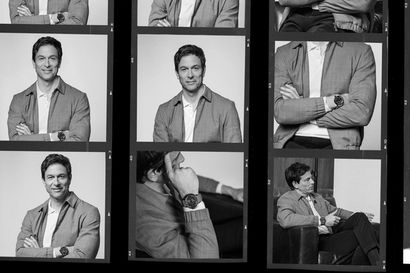They’re stand-up guys; each and every one of them. They’ll sit you down, straighten you out and shake you up — before making you a cocktail you can’t refuse. They arrived in London from Italy, bringing along their bartending talent from Verona, Sicily and Sardinia. And now, offering everything from Gibsons to Godfathers, they’re in charge.
From Brown’s Hotel to The Bloomsbury, this city’s slick hotel bars are overseen almost exclusively by Italians. They’re the capital’s cocktail consiglieri; a long-established, much-respected ring of discreet, professional mixers who can fix drinks like nobody’s business.
There’s Giuliano Morandin, an elder statesman celebrating four decades of service at The Dorchester. There’s Federico Pavan, a manager being primed to take the place of maestro mixologist Salvatore Calabrese. And there’s Alessandro Palazzi, a living legend who mixes such lethal martinis at Dukes Bar that guests will be refused a third.
Bound by fierce ‘fratellanza’, this group of Italian bartenders runs the capital with flair and finesse. And, of all the outfits and organisations still stirring across the lavish West End, this is the best-dressed, most high-spirited of them all. Here, six of the city’s most distinguished bar bosses tell their intoxicating stories…
Giuliano ‘La Leggenda’ Morandin , Bar Manager at The Dorchester
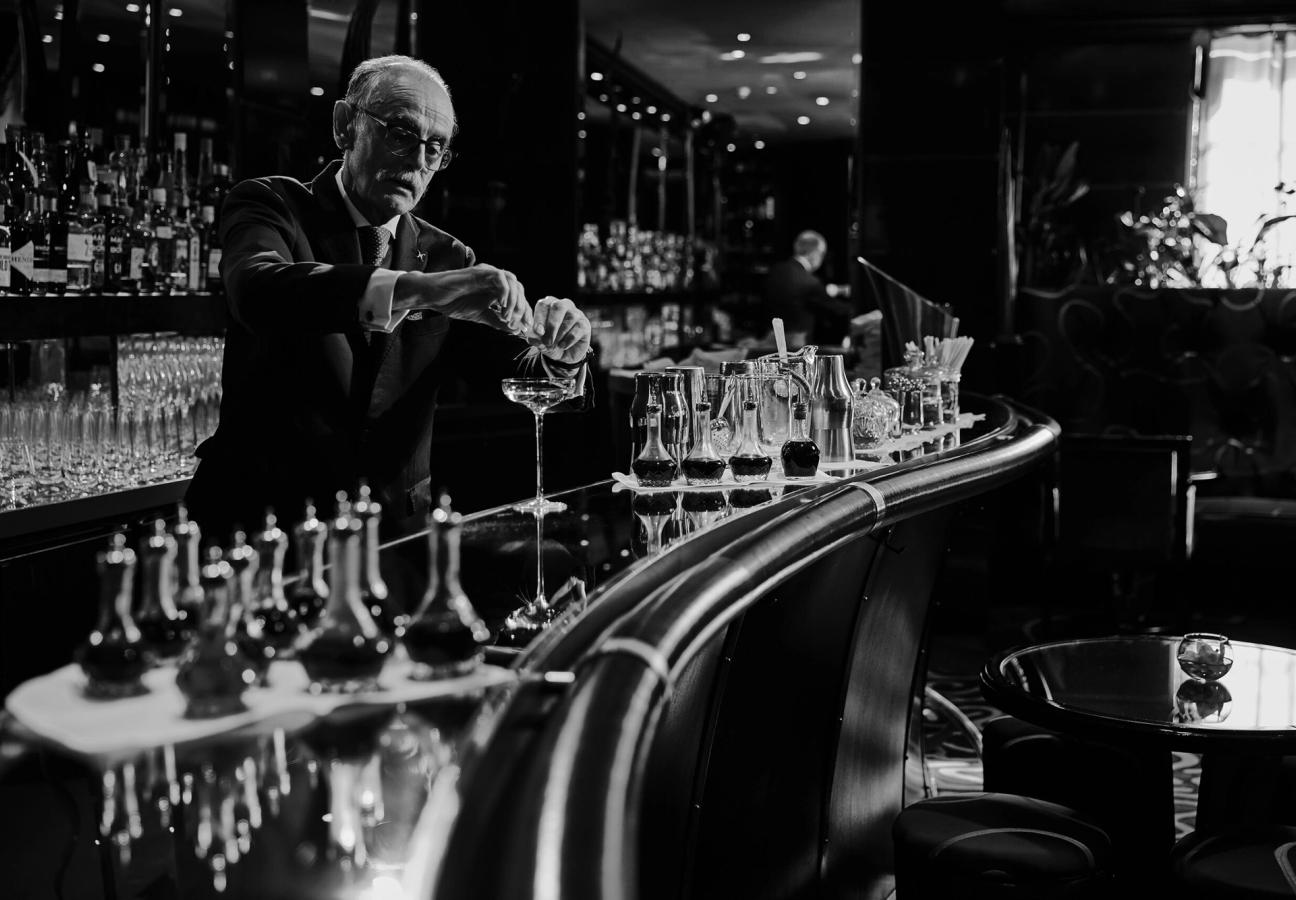
Where did you spend your childhood?, In a spa town called Abano Terme, about fifty kilometres from Venice. It had a lot of hotels. And so, during my school holidays, I worked in one — as a dogsbody. I cleaned floors, polished brass, I did everything. I look back now, and wonder how I had the energy. And, after that, I did three years of catering college, with work experience in Travemünde, up by the Baltic in Northern Germany. That was the first bar I worked.
Who was your closest adviser?, When Bonn was the German capital, I worked at The Steinberger Hotel. The government would have parties there — I served Indira Gandhi, even Hirohito of Japan — and the bartender was a legend. Tall and blonde, he drove a Fiat Coupé, even during winter. His name was Berenbrock. Once, when a customer left pennies on the bar, Berenbrock picked up a bin, swept the pennies into it, looked directly at the man and said; “Danke”. I bet the guy never did that again.
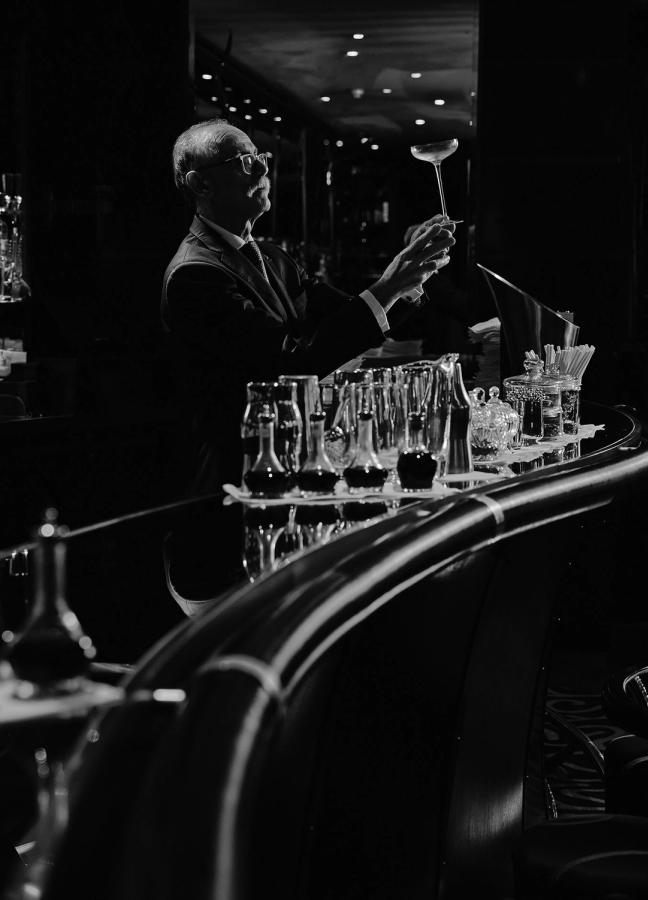
When did you discover your passion?, Bars have alway fascinated me. It’s the atmosphere. But the drinks, for me, are not as important as the people. Because you can make a perfect drink, but if it’s not what the customer wants, or if it’s not served right, or if you don’t make them feel welcome, it’s a waste of time. Deep down, that is the essence of our trade. The rest of it — the luxury, the expensive glassware and the £1,000-a-shot whisky — that all comes second.
When did you arrive in London?, After Germany. I worked at The Hilton, then seven years at Dukes. Around that time, the Italians started coming. Then more Italians. And more Italians. Bar managers back in Italy, at places like Hotel Cipriani in Venice, thought it beneficial to send bartenders to London for a few years. But many would stay. Before that, there were lots of English guys working in bars. What happened to them? I don’t know. They disappeared.
"The drinks, for me, are not as important as the people..."
Who is your most memorable customer?, Definitely the hotel guest who insisted that I cook a Bolognese for him — at 1AM. We have, of course, many wonderful chefs at The Dorchester, but the guest knew I was Italian and wanted my home recipe. So I went to the kitchen, put my chef’s hat on and made it from scratch. It took me over an hour, but he waited in the bar — and called it one of the best he’d ever tasted. So it was worth it.
Which cocktail is closest to your heart?, The Martinez. When we closed the old bar and opened this bar, we wanted a cocktail that said: ‘This is The Dorchester’. But we didn’t want to make something new. We wanted something with historical value. And, though many people forget about the Martinez, it is one of the most important cocktails ever; the grandfather of the Martini and the Manhattan. Ours is Old Tom Gin, Booker’s Bitters, a little vermouth and Luxardo Maraschino, made in Torreglia — which is around three miles from where I was born.
Federico ‘Poco Maestro’ Pavan, Director of Mixology at Brown’s Hotel
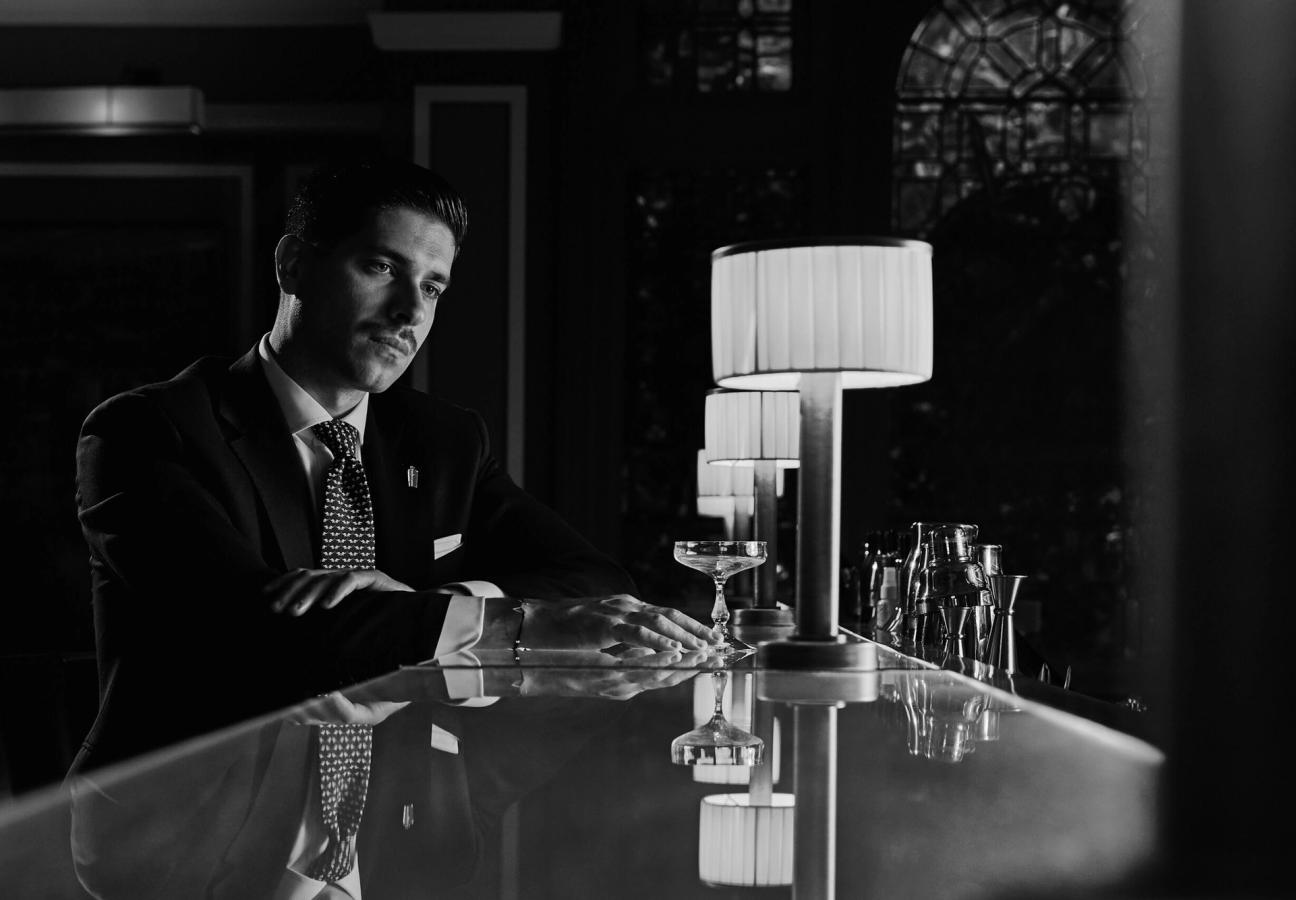
Where was the first bar you ever worked?, A place I was already a customer. I grew up in Legnago, a small village near Verona. And, one night, the waitress wasn’t feeling well and asked me to cover her shift. So I started there, as a ‘barback’. But, before I turned 20, I made the choice to move out of Italy. It was a blind choice; I closed my eyes and pointed at a map. Spain. Madrid. After four years there, however, I needed London. I had to have the challenges of the ‘capital of cocktails’.
Who has been your greatest mentor?, After a year in London, I began working with the maestro, Salvatore Calabrese, at the Playboy Club. He has such a unique style, he’s so elegant and has been a big part of my progression in this world. Working with Mr. Calabrese, some people call me ‘the little master’. It’s for fun. I don’t call myself that. Because part of this job — perhaps the most important part — is to be humble. Mr. Calabrese taught me that.
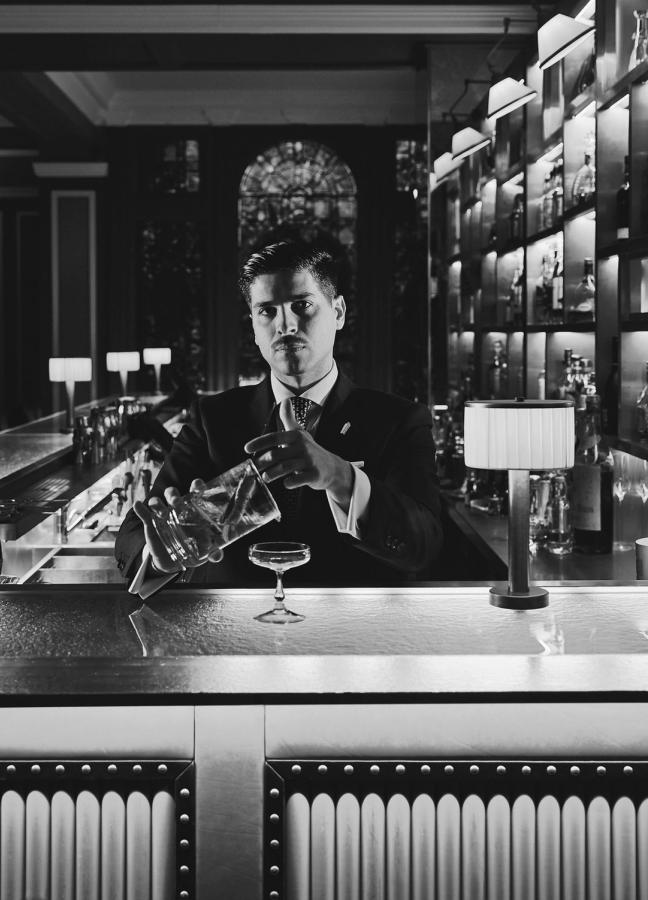
Where did you hone your skills?, When the Playboy Club closed, Mr. Calabrese sent me to Japan. I worked in Ginza, the Mayfair of Tokyo, for Hidetsugu Ueno — another guru of the bartending world. When I returned to London, I went to The Connaught Hotel. Although I never really stopped working for Mr. Calabrese. From Las Vegas to Hong Kong, he would send me travelling, training. And, four years ago, he took on this bar — and called me home.
Why are Italian bartenders so prevalent in London?, Because British people appreciate Italian heritage. They appreciate our way of welcoming them. Back in Italy, we have many different cultures and influences. It can change from village to village. In that way, it is a very antique nation. But the British like that. And London, especially, helps us showcase our culture. It is a very cosmopolitan city. And, with so many elegant hotel and cocktail bars, it is the perfect place for us.
"Part of this job — perhaps the most important part — is to be humble..."
What is your most cherished cocktail?, The ‘Madam Loren’. It’s a drink inspired by Sophia Loren. In one interview, she said: ‘Everything you see, I owe to spaghetti’. And Italians always think of spaghetti as ‘Spaghetti Pomodoro’. So we wanted to use this Italian flavour of tomato. Other tomato cocktails, such as the Bloody Mary, are heavy. This is not. Gin-based, it is made with tamarillo puree and a touch of honey. It is light, elegant, and garnished with a fried basil leaf.
When did you begin vouching for your own talents?, I still don’t like to say I’m good at this — because that’s not for me to say. But perhaps when I realised that they’re not just ‘drinks’ behind the bar. They’re products, pieces of history and the cocktails you can make using them. These days, people compare bartenders to chefs. Not at all. We may all be artists, but only a bartender needs the knowledge, the skill and a connection to his people. Because the bar, for a bartender, is like a stage.
Giovanni ‘Il Capo’ Spezziga, The Coral Room General Manager at The Bloomsbury
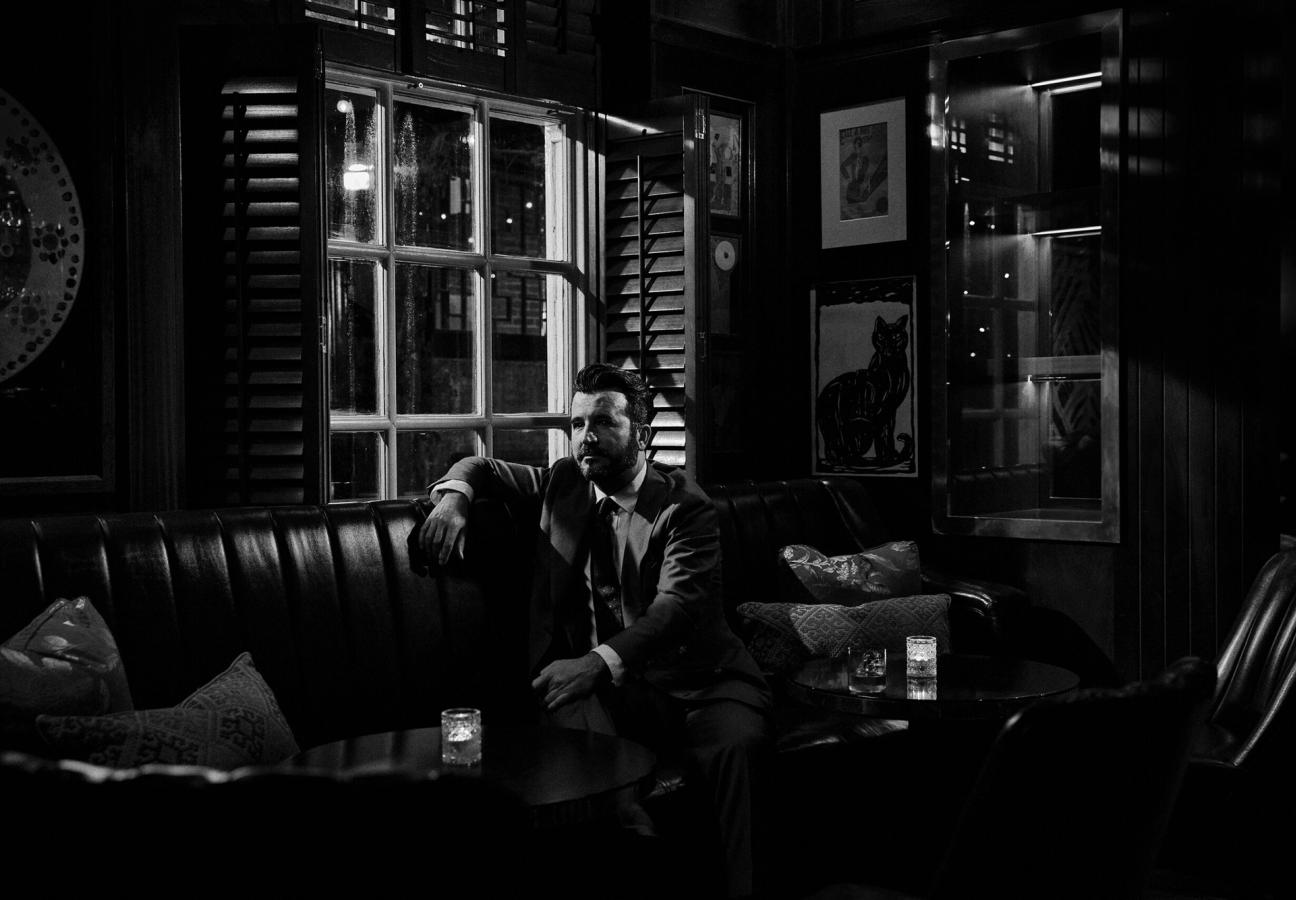
When did you get your first taste of the industry?, My grandmother owned a delicatessen is Sorso, Sardinia. That’s where I first worked in hospitality. It was probably illegal, but my wages were candy. I went on to study accounting for five years, but didn’t enjoy it. So I went to work in a grand hotel on the Costa Smeralda. There, I fell in love with the energy and elegance of bars. People dressing up for evening cocktails. The piano. I can close my eyes and go back. Good food, good-looking people. A very international, powerful, influential clientele. I spent seven summers years there.
What lured you away to London?, Historically, Italy has always been very good with hospitality. But some of the most glamorous five-star hotels in the world can be found in London. It’s a melting pot. So much culture. And that’s the reason most of us came to London. That’s also why London is probably still one of the best places to do our job. Not even New York is catching up — London has some of the best bars, and bartenders, in the world.
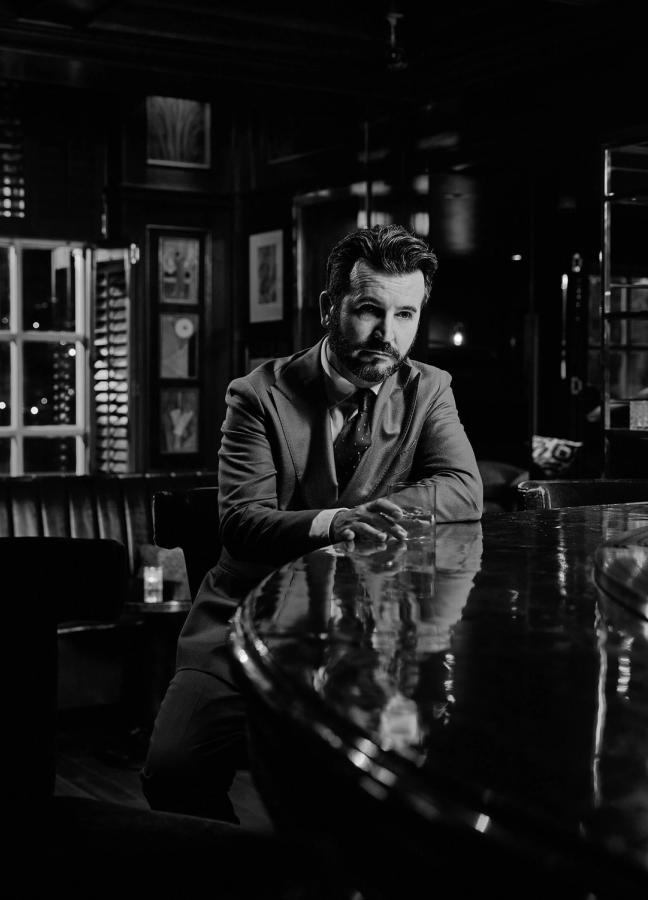
And many are Italian. How did that happen?, It’s like a mafia — in a nice way. A lot of us came to London at the same time. Me, Antonino, Federico. And we would all meet up on Sundays for gigantic crazy Italian barbecues. They’d go on very late because Monday was your day off. We’d take turns hosting; make proper cocktails with a big block of ice. We weren’t messing around. It was a beautiful time. And we still text each other. There are a couple of WhatsApp groups between the Italians. It’s a family.
How hard did lockdown hit the family?, It was emotional. It doesn’t feel right, closing a bar. It was a very bizarre moment in my career. Shutting things down? Locking everything? You don’t want to do that. It was a very sad time. It happened many times in Sardinia, but that was a different feeling. It was a seasonal job, so you’d close, but celebrate and know you were going to meet again some months later. But this? This was very stressful.
"London is probably still one of the best places to do our job..."
Have you ever been starstruck by a customer?, Only one. You know Happy Days? You know ‘Fonzie’? Henry Winkler. I met him in Sardinia, a long time ago. He came in for an aperitivo. And I ended up taking a photograph with him because, in Italy, you grow up watching Happy Days. That’s the only photograph I still have in my cabinet. I don’t take photographs with celebrities. But I did with Fonzie. It was the most hilarious, funny moment of my career.
What is your proudest creation?, It’s not a cocktail. It’s something else. I created a combination of many spirits and spices and, over the years, I have used it in many, many cocktails. I reduce it down to a syrup; a beautiful formula. Eight secret spices and dark brown sugar, toasted and roasted with Angostura Bitters, cognac and overproof bourbon. I use it instead of sugar syrup in Old Fashioned-style cocktails and winter drinks. And it’s followed me for many, many years.
Alessandro ‘Papi’ Palazzi, Bar Manager at Dukes Hotel
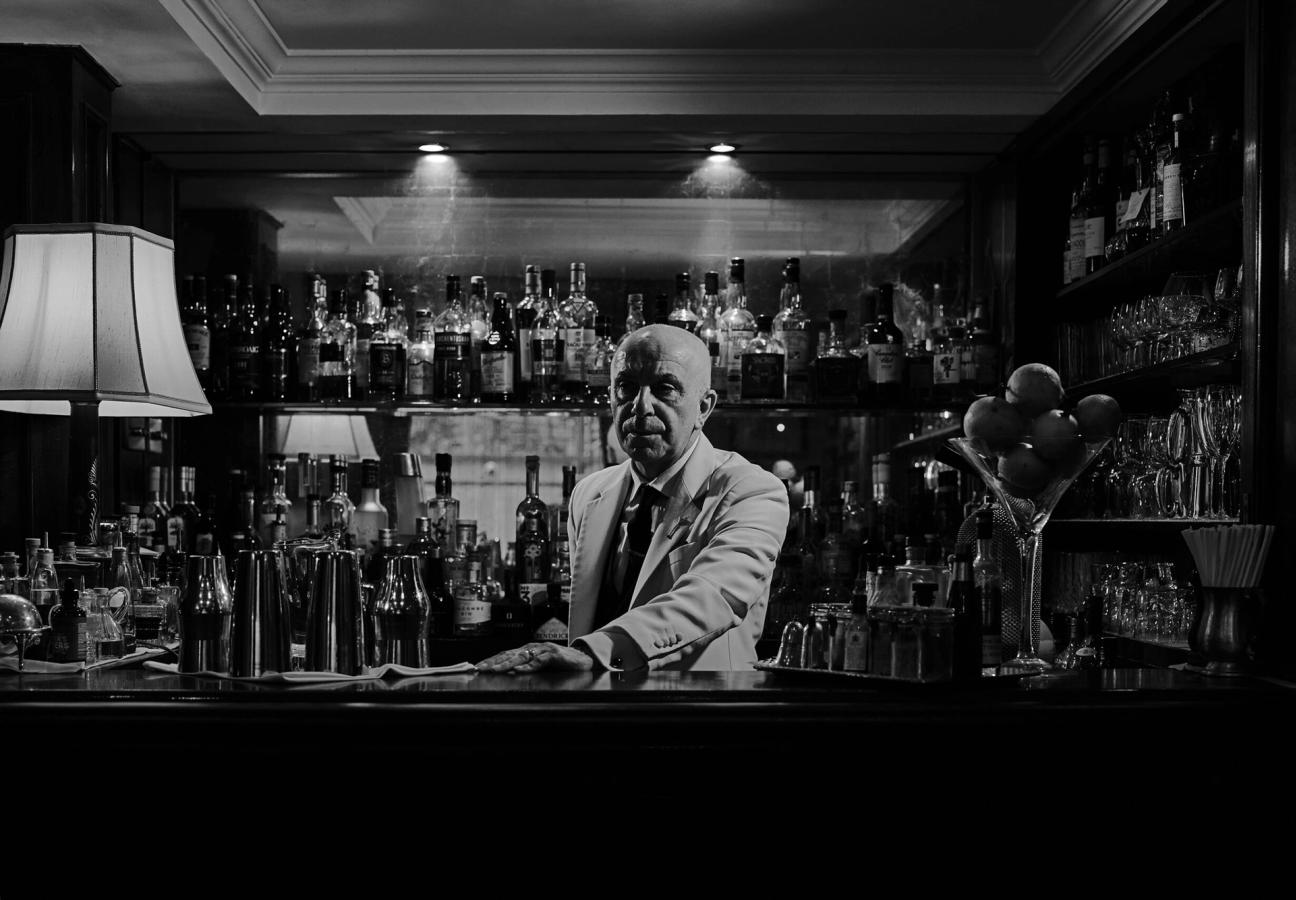
What was your initiation into the bartending world?, Where I grew up, in Varese near the Swiss border, motorcycles were a big thing. If you were 14 and you didn’t have a motorcycle, the girls wouldn’t even look at you. So I had to get a summer job, to earn some money and get a motorcycle; a Gilera. To be honest, I’ve never been interested in them. It was just for the image. I started work in a hotel in Loretto, a town where Catholic people come to pray for miracles. But I didn’t have the usual Italian upbringing. My mother never sent me to church. So I swore at a guest, and the owner put me in the bar as punishment. Nobody wanted to be in there — because it wasn’t a cocktail bar — but I enjoyed the feeling.
Why are hotel bars such special places?, Because people don’t visit these places every day. Only on special occasions. So you never know who’s in front of you. In that way, bartenders are like emcees. And, when people aren’t used to these places — if they’re on a first date and they’re nervous — you can tell that they’re not relaxed from their body language. It’s my job to then make them relaxed. And, to see them leave calm, with a smile on their face? That’s the best tip in the world.
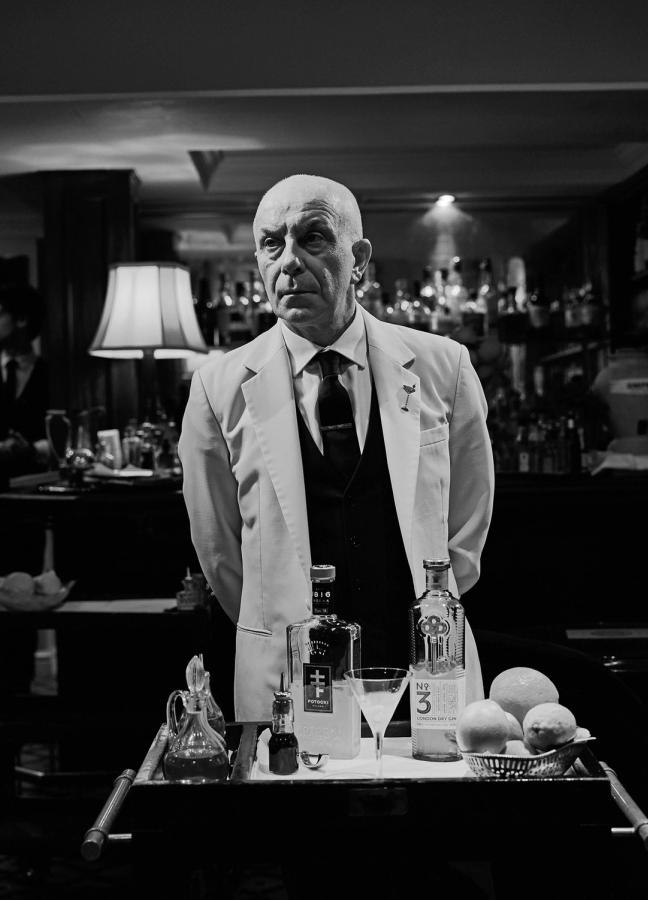
What are your responsibilities in the bar community?, To help the younger generation. That’s my duty. To help them continue the legacy. They call me ‘Papi’. Like father. Because I’ve always been a shoulder in this industry. In the various places I’ve worked, if the boss was nasty, people would come and cry to me. And I try to be the good side of this industry. Even today, if I do something wrong, I’ll go home thinking, I wasn’t nice today, I spoke to him badly. And I’ll tell myself off.
Which of your former customers did you respect the most?, For me, the ultimate customer was Gianni Agnelli, the owner of Fiat. What a man. What class. He was old school. In Italy, he was an icon for us. If he put his watch here, you’d do it. If he tied his tie like this, you’d do it. The first time I met him was at The Ritz in Paris, and he was lost. I thought; wow, L’Avvocato. The thing about Mr Agnelli was that he didn’t only know how to drink; he knew how to talk. And he was never, ever pretentious.
"To see people leave calm, with a smile on their face? That’s the best tip in the world..."
Are there any cocktails that you hate making?, The Long Island Ice Tea — that is poison in a cocktail. Because people don’t seem to understand it. Mixing five alcohols — tequila, gin, vodka, rum and Cointreau — and topping it up with Coca-Cola? That is the worst thing you could put in your body. Two white spirits, one with botanicals, and so much sugar from the Cointreau and the rum. Poison.
You’re one of London’s cocktail kingpins. Is there anyone you look up to?, Probably Giuliano [Morandin]. He is a little older than me but, thanks to him, I’ve always kept my feet on the ground. He’s a proper bartender. And, although we are all competitors, and we all know each other, there’s never any jealously. I’ve never understood why people may think that. We visit each other, we take it seriously, but we love to talk. Some people think we are slaves. We are not slaves. This is in our DNA.
Antonino ‘Smiley’ Lo Iacono, Le Magritte Bar Manager at The Beaumont
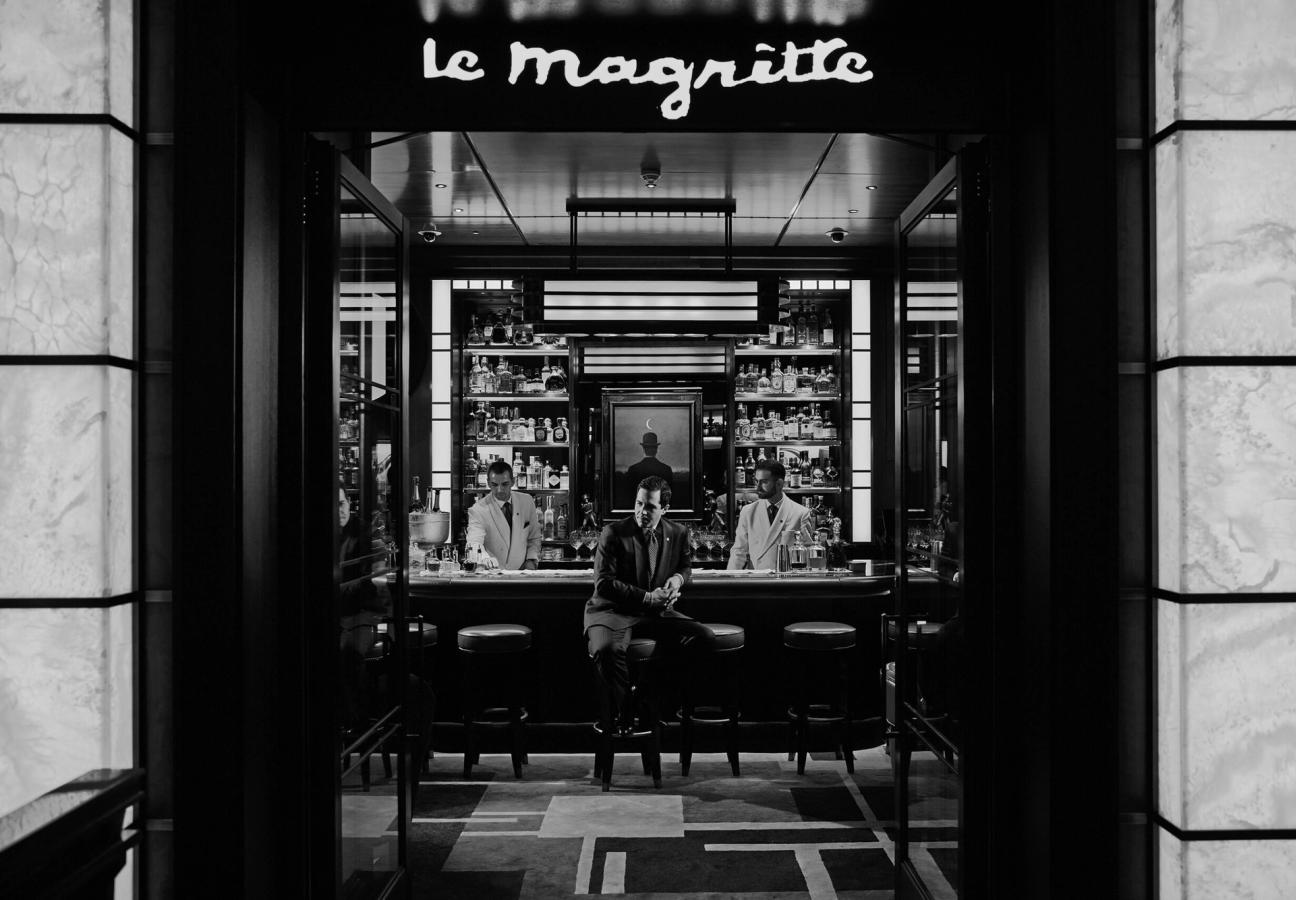
Has bartending always been in your blood?, I grew up in Sicily, in a small village called Camporeale. My family had a vineyard — but this wasn’t wine to sell to the public, just to drink at home. When I was younger, my friends and I would often sneak a bottle and go somewhere to hide and drink it. Perhaps smoke a cigarette, too. I still go back about once a year, as my family are still there. They still have the vineyard — and grow Cataratto grapes, a typical grape from Sicily.
When did cocktails come into your life?, The first bar I worked was in a tourist village in Sicily, called Castagna. That was 2003. But it was very simple. Traditional cocktails — like Campari Soda, or Aperol Spritz. The cocktail culture in Italy came quite late. It wasn’t very accepted. Maybe in the bigger cities, in hotel bars. But it’s not like London, where you might go out for an evening to a hotel bar. That’s something that only became fashionable much later in Italy.
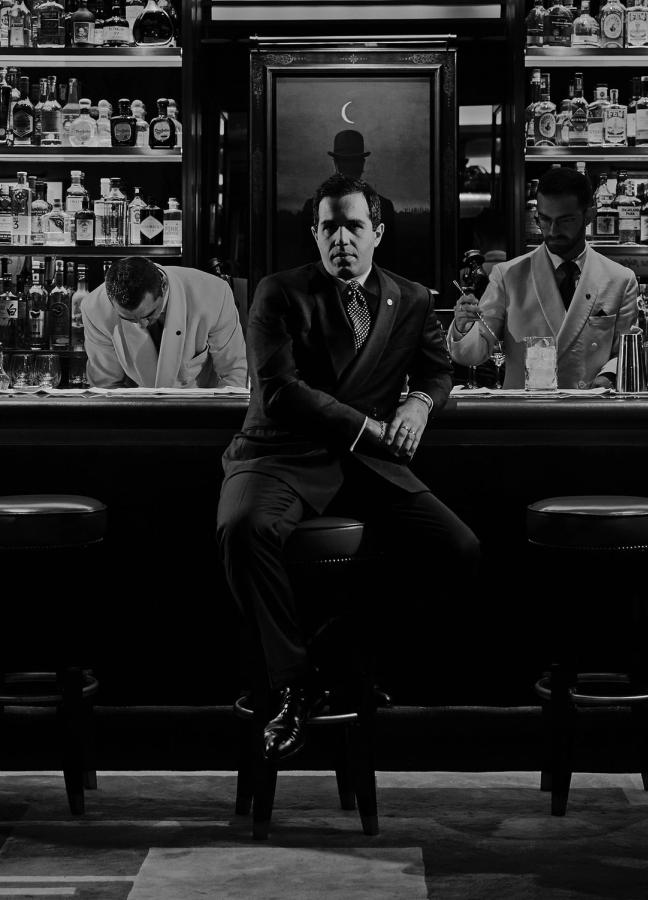
Who taught you the importance of cocktails?, Since I came to London, in 2006, I have had three mentors. One is Brian Silva. From him, I learnt what we’ll call ‘the cocktail formula’. Then there’s Alessandro from Dukes. From him, I learnt more about customer service. He taught me how to build relationships with the guests. And my last mentor was probably Luis Simoes, the beverage manager at Mark’s Club. From him, I learnt how to throw a party. Together, they made me complete.
Have you seen changes in the industry since you arrived?, Everything is hospitality. And hospitality is everything. But, with Brexit, hospitality was hugely affected. A lot of my colleagues didn’t have the right to stay, so they had to go back to Italy. At the moment, there is a big shortage of staff. It has made things almost impossible. And then Boris Johnson, in a press conference, says ‘tutti benvenuti’? [‘Everyone is welcome’]. That was like watching Family Guy. Like he thought he could speak Italian.
"The cocktail culture in Italy came quite late. It wasn’t very accepted..."
Do Italians all look out for one another in London?, I’m always trying to explain this. In Italy, there’s almost a discrimination between people from the north and people from the south. It’s not nice, but it’s the reality of life in Italy. But here in London, there is no more north-south. There is just the Italians. And so we became strong. We became a community. And, if you need a job, as soon as you say you are Italian — boom! You’re a waiter. Because here, we all try to help each other.
What is your cocktail of choice?, It has to be the Negroni. Negroni forever! And I make it simple, classic; the way it was born should be the way it dies. Nothing has to be changed. Because it contains our culture. It starts with the sweet vermouth, which is part of Italian culture. Then the Campari. And then gin, which Count Camillo Negroni brought back to Italy after visiting London. So even the Negroni has that same connection we have; one between Italy and London.
Raffaele ‘Rafi’ di Monaco, Bars Manager at The Berkeley
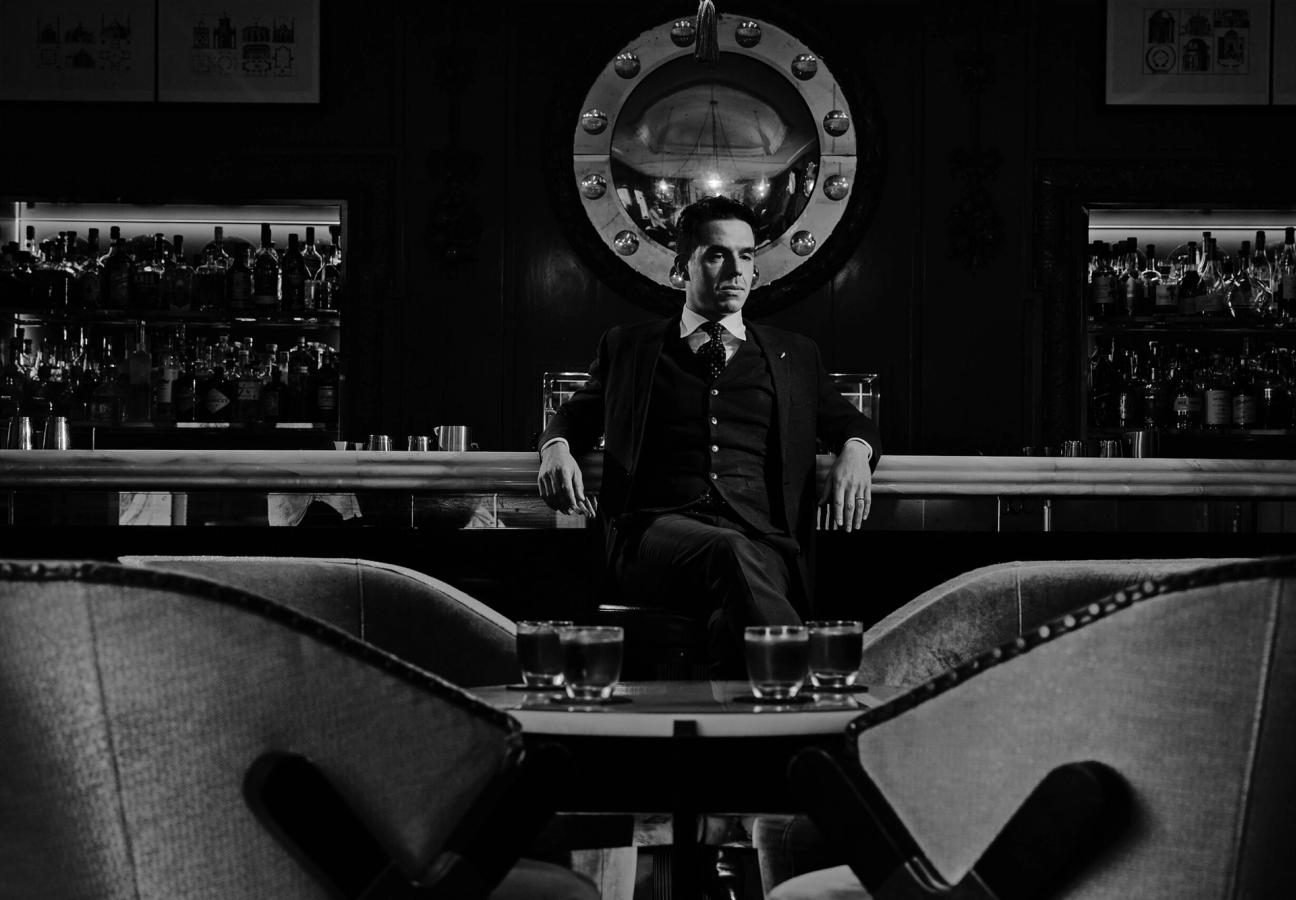
How old were you when you tended your first bar?, At 22, I was actually running a bar. I grew up in southern Italy, but moved between Rome and Naples to study. A friend and I were working in a bar in Lazio, called Caffe Italia. And the owner, whose main business was investing in properties, was tired. So we took it over. We loved the space, and we were very engaged with it. But it was intense. Very intense. So, when the two-year lease expired, I moved to London.
When did your career become your passion?, When I worked for Tony Conigliaro at Drink Factory. He taught me a lot about making drinks — how to balance and approach flavours. I’d always been interested in developing new cocktails and infusions. But what they were doing at Drink Factory was very advanced. Today, everyone uses kitchen technique in bars. We take it for granted. But going into that space? Where they’d been doing it for ten years already? That’s where I thought; now I get it.
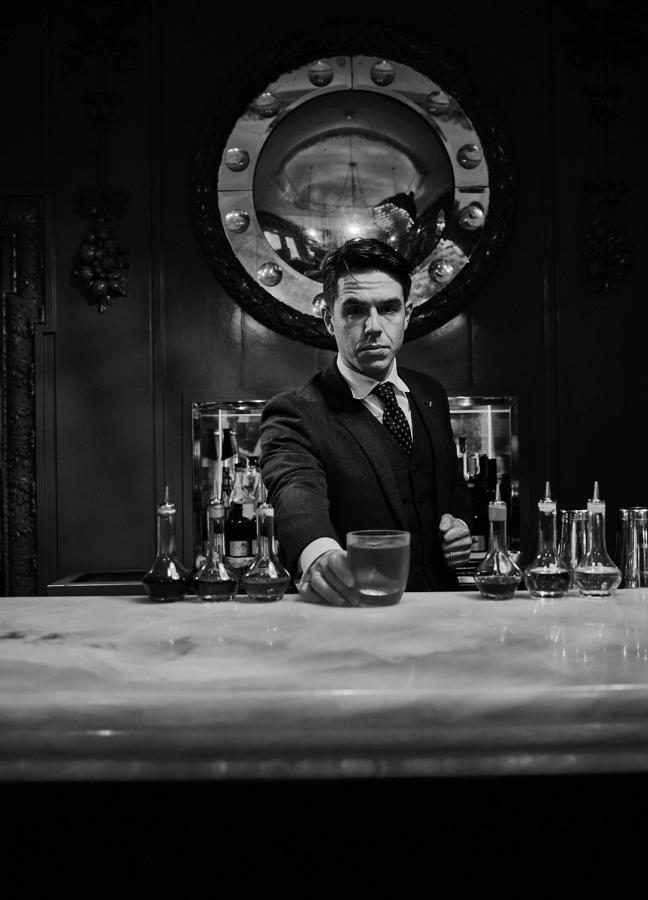
Which of your creations are you the most proud of?, Many of my drinks — and I’ve made quite a few. But, when we launched the ‘Meta’ menu, the first standalone cocktail list here in The Blue Bar, I was very proud of the ‘Naked in the Rain’. It’s a twist on the Martini — with vodka, beetroot distillate, coconut water, salt and dry vermouth. It’s a quite simple approach to create a more umami dirty Martini. I’d actually like to put that one back on the menu again at some point.
Are there any cocktails you would never make?, Occasionally, bartenders will bring back ‘forgotten’ cocktails. But, sometimes, these drinks were forgotten for a reason. A drink I would never order is a ‘Blood and Sand’. It is whisky, orange juice and cherry liqueur. It doesn’t even sound good. I’m not saying that people shouldn’t be making it or drinking it, but I prefer balanced cocktails. Some people want edgier cocktails. But, for me, a flavour should be linear. It should make sense.
"Sometimes, these drinks were forgotten for a reason..."
Is there any rivalry between Italian bartenders in London?, No. We don’t have that. Even with other nationalities. At the end of the day, we are a business — but we still try to support others. If someone needs something, we will help. If their ice machine is broken, they’ll call up and we’ll send over ice. We have a group on WhatsApp, with a lot of Italians in it. We invite each other to events. Or find out where we can source certain products. Or ask people to help us with suppliers. It’s like a family.
Why do Italians run London’s hotel bar scene?, Because it’s been part of our lives for generations. Our mothers. Our fathers. Our grandmothers. Italians are hospitable. When someone comes into our house, we make sure the house is tidy, and the food is ready. And, eventually, this has translated into our work. This is what we do — we host people. We make sure people are looked after and have a good time. It’s how we should treat people, it’s part of our heritage, and it’s part of who we are.
Want more of London’s social scene? Inside the resurrection of Langan’s…
Become a Gentleman’s Journal member. Find out more here.
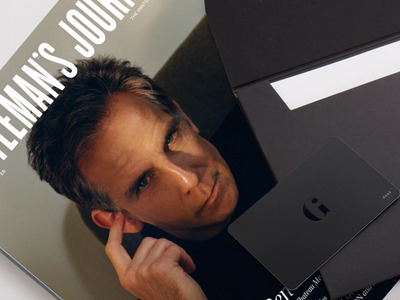
Become a Gentleman’s Journal Member?
Like the Gentleman’s Journal? Why not join the Clubhouse, a special kind of private club where members receive offers and experiences from hand-picked, premium brands. You will also receive invites to exclusive events, the quarterly print magazine delivered directly to your door and your own membership card.
